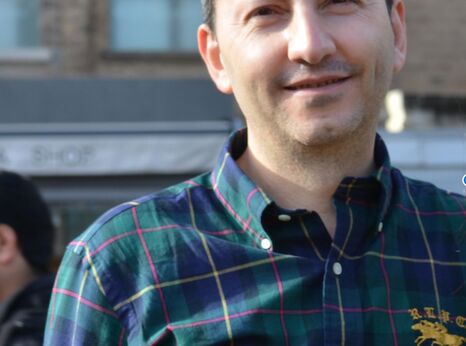Iranian-Swedish doctor at risk of execution

On 24 November 2020, in response to a tweet posted by Sweden’s minister of foreign affairs noting a phone call with Iran’s minister of foreign affairs that day and where Sweden “condemns the death penalty and is working with the intent to stop the sentence against [Ahmadreza] Djalali from being carried out”, the spokesperson for Iran’s ministry of foreign affairs Saeed Khatibzadeh said that this information was “flawed and wrong” without elaborating further.
Ahmadreza Djalali, an Iranian-Swedish medical doctor and academic living in Sweden, was on a business trip to Iran when he was arrested on 26 April 2016. He was held in Evin prison for seven months in section 209, which is under the control of the ministry of intelligence. He was held for three months in solitary confinement, without access to a lawyer. Ahmadreza Djalali said that during this period he was subjected to torture and other ill-treatment, in order to force him to “confess” to being a spy. He has said that he was forced to read out “confessions” pre-written by his interrogators in front of a video camera. Ahmadreza Djalali denies the accusations against him and says they have been fabricated by the authorities. In a letter written from inside Evin prison in August 2017, Ahmadreza Djalali said he was held solely because of his refusal to use his academic ties in European institutions to spy for Iran.
On 17 December 2018 Iranian state-run TV aired Ahmadreza Djalali’s “confession” during a programme titled Axing the root, which used dramatic music, graphics and international news footage interspersed with Ahmadreza Djalali’s “confession”, along with a voiceover presenting him as a “spy”. By extracting and airing these forced “confessions”, Iranian authorities violated Ahmadreza Djalali’s right to the presumption of innocence as well as the right not to be forced into incriminating himself. Ahmadreza Djalali has since said the broadcast “confession” was filmed while he was being held in solitary confinement, without access to a lawyer.
In November 2017, the UN Working Group on Arbitrary Detention called on Iran to release Ahmadreza Djalali immediately and accord him an enforceable right to compensation and other reparations, as he had been detained without an arrest warrant, was only formally charged 10 months after his arrest, and had been “effectively prevented from exercising his right to challenge the lawfulness of his detention”. They also found that his right to a fair trial had been violated so gravely “as to give Mr Djalali’s deprivation of liberty an arbitrary character”.
Amnesty International opposes the death penalty in all cases without exception regardless of the nature or circumstances of the crime; guilt, innocence or other characteristics of the individual; or the method used by the state to carry out the execution. The death penalty violates the right to life as proclaimed in the Universal Declaration of Human Rights.